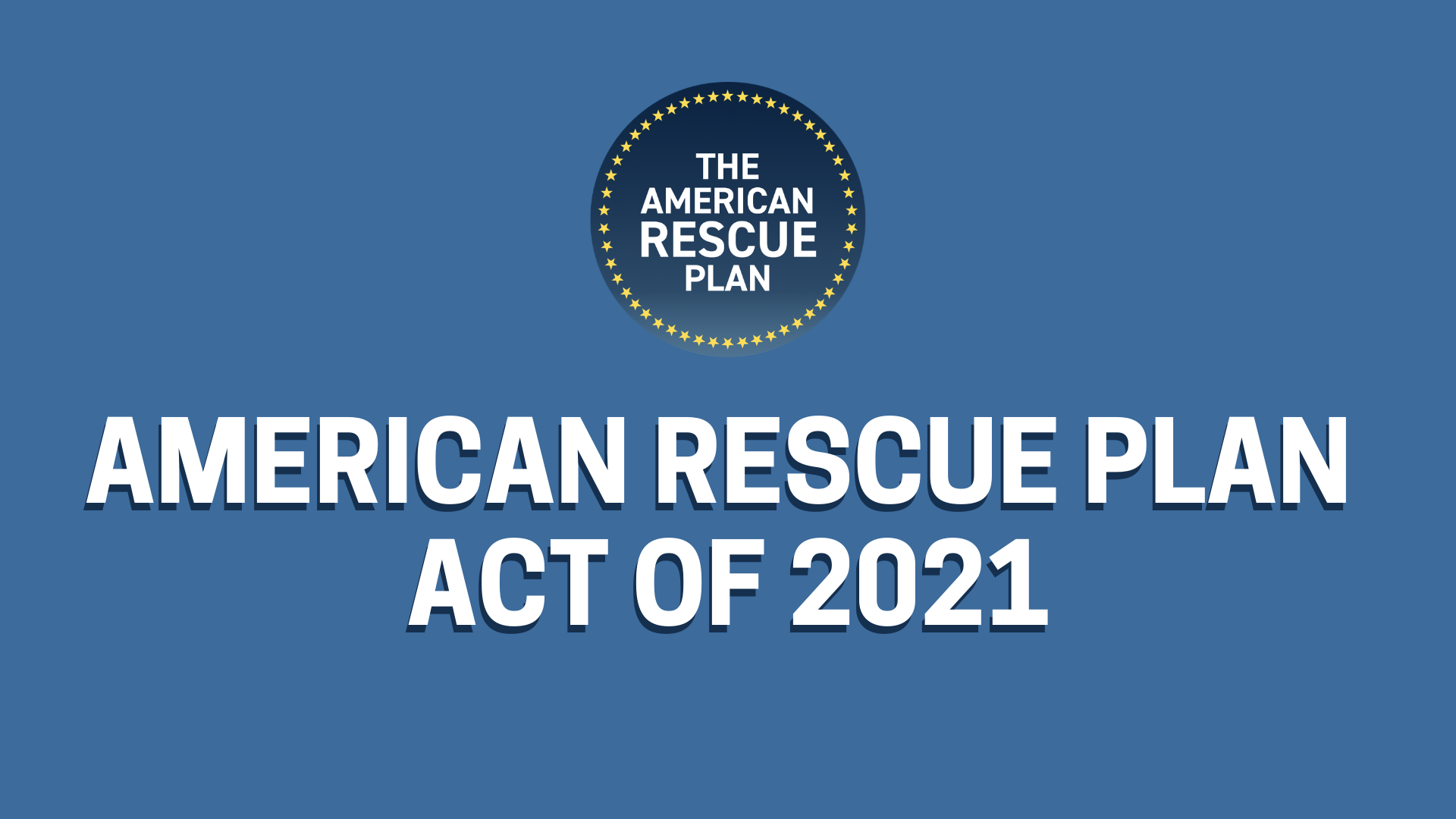
The American Rescue Plan Act of 2021 – Highlights for Employers
On March 11, 2021, President Biden signed into law the American Rescue Plan Act of 2021 (ARPA-21), providing continued economic relief to individuals, businesses, and governments during the COVID-19 pandemic.
Many of the provisions of ARPA-21 are relevant to employers. Key employment-related provisions of ARPA-21 include:
- Extension and Expansion of FFRCA Paid Sick and Family Leave Tax Credits for Voluntarily-Provided Qualifying Leave: ARPA-21 does not require private employers to provide paid sick or family leave for COVID-19-related reasons under the Families First Coronavirus Response Act (FFRCA). However, it does extend the availability of tax credits for voluntarily-provided qualifying FFCRA leave paid by covered employers (private employers with fewer than 500 employees). ARPA-21 covers wages paid for leave from April 1, 2021 through September 30, 2021.
ARPA-21 also expands the COVID-19-related qualifying reasons for the tax credits to include (a) employees seeking or awaiting results of a diagnostic test for, or medical diagnosis of, COVID-19 after an exposure to COVID-19 or test or diagnosis at the employer’s request; (b) employees obtaining immunization related to COVID-19; and (c) employees recovering from any injury, disability, illness, or condition related to a COVID-19 immunization.
ARPA-21 creates a new annual allotment of up to 80 hours per employee of qualifying paid leave available for tax credits in 2021 (exclusive of the first quarter), and increases the per employee tax credit cap for family leave from $10,000 to $12,000.
Finally, ARPA-21 disqualifies employers from receiving a tax credit if they fail to comply with the provisions of FFCRA or discriminate based on employment tenure or in favor of highly compensated employees or full-time employees.
- COBRA Premium Subsidy: ARPA-21 provides a COBRA premium subsidy to certain eligible employees or dependents of employees who lose group health plan coverage due to an involuntary separation or reduction in hours. For self-insured plans, employers cover the premium and may receive a payroll tax credit in the amount of the subsidy as reimbursement. For fully-insured plans, the insurer may receive the payroll tax credit.
Eligible individuals include those who would have been eligible for COBRA during the period of April 1, 2021 to September 30, 2021. This includes individuals whose COBRA election period ended prior to April 1, 2021, but did not elect COBRA coverage and individuals who elected COBRA coverage but stopped making premium payments prior to April 1, 2021.
To receive a payroll tax credit, the employer is required to provide notice to COBRA-eligible individuals of the premium subsidy and its expiration date and the ability to make new COBRA elections.
- Unemployment Benefits and Compensation: ARPA-21 expands unemployment assistance and benefits originally created under the CARES Act through September 6, 2021. This includes direct payments of $300 per week for weeks of unemployment. ARPA-21 also expands the total weeks’ entitlement from 24 to 53 weeks with phased out benefits allowed through September 6, 2021 for individuals who are eligible for Pandemic Emergency Unemployment Compensation (PEUC).
- Payroll Protection Program: ARPA-21 appropriates an additional $7.25 billion in funding to the current Payroll Protection Program (PPP) funding still available, and makes certain nonprofit organizations eligible for PPP funding. The PPP application period is scheduled to end on March 31, 2021, and ARPA-21 does not extend this application period.
- Extension of Employee Retention Credit: ARPA-21 extends the Employee Retention Credit (ERC), previously set to expire in June 2021, through December 31, 2021. The ERC provides a credit to certain eligible employers who experience full or partial shutdowns or a qualifying decline in their receipts in 2021 due to COVID-19.
- Restaurant Employers: ARPA-21 includes funding for economic relief for restaurants and other food and drink service employers. Eligible entities can apply for a grant of up to $10 million to pay for specified expenses, including payroll costs, mortgage and rent obligations, utilities, supplies, maintenance costs, food and beverage expenses, operational expenses, and certain covered supplier costs.
- Aviation: ARPA-21 includes funding for airport sponsors if the airport continues to employ, through September 30, 2021, at least 90 percent of the number of individuals employed by the airport as of March 27, 2020 (after adjustments for retirements and voluntary separations). ARPA-21 also provides funding to the Secretary of Transportation to setup a payroll support program for aviation manufacturing companies that are not already benefitting from certain credits for financial assistance provisions of the CARES Act or the Small Business Act. Finally, ARPA-21 includes funding to extend the payroll support programs for air carriers and associated contractors originally created under the Consolidated Appropriations Act, which amended the CARES Act in January 2021.
- Funding for DOL Activities: ARPA-21 includes funding to the Department of Labor that is to remain available through September 30, 2023 to help carry out COVID-19 related worker protection activities, such as audits and inspections.
Notably, ARPA-21 did not increase the federal minimum wage despite passage by the House of a bill containing an increase. The increase was removed by the Senate before ARPA-21 was signed by President Biden.
The employment attorneys at Martin Pringle will continue to monitor COVID-19- and economic-recovery-related developments. We are ready to assist with your questions regarding ARPA-21 and otheremployment topics.